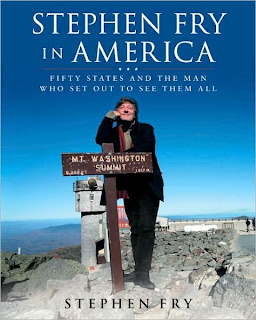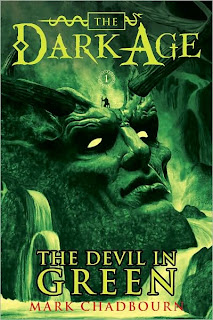
Popular fiction series rely heavily on the indulgence and selective memory of the reader, particularly in the early going of a new book. All of the ungainly wheels of coincidence and danger need to be trotted back out, oiled, and set to work, while that reader rubs his hands together and remembers the Really Good Stuff from earlier books -- said Really Good Stuff typically coming at the end of a book, of course, where the series hero and a few plucky compatriots finally gather all of the information and maguffins and weaponry they need and activate the plan that's So Crazy It Just Might Work. And the reader knows something like that will be coming at the end of
this book as well, so he settles in, trying not to be annoyed by the writer's ever-more-obvious tics and the weight of backstory that needs to be explained yet again (and which seems less plausible every new time the explanation is made).
Jim Butcher is a storyteller rather than a fine writer, who uses the same bricks of description, dialogue, and characterization in book after book -- they all worked just fine the first time around, so why change them? And that familiarity, as Harry Dresden declares, one more time, that he's going to stand up against the baddies to stop "people" from "being hurt," can either lead to the comfortable feeling of settling into a warm bath, or to a dull sense of
deja vu.
Changes is the book where a lot of Harry Dresden's demons catch up with him, where he finally has to face up to the fact that his "I'll just save
everybody, all of the time" attitude might not be precisely realistic, and that exercising power means hard choices. It also has an ending that I expect has already gotten fans of the series chattering madly -- there's the biggest magical confrontation yet, followed by a series of hard choices, revelations, and surprises, ending with the kind of cliffhanger that really has no place in a series of discrete novels. (It's a
Two Towers-level cliffhanger, and I expect it will be a year before the next novel resolves it.)
In the first line of the novel, Harry -- once "Chicago's only consulting wizard," but latterly one of the mainstays of the wizardly White Council's police/enforcers/soldiers, the Wardens -- learns from his ex-lover Susan Rodriguez that the two of them have a seven-year-old daughter, Maggie, and that Maggie has been captured for nefarious purposes by the vampiric Red Court.
Cue a massive infodump, because Susan is a half-vampire -- infected but not turned by the Red Court, still somewhat human as long as she doesn't give in to her blood thirst -- who works for the Fellowship of St. Giles, a loose federation of half-vampires like her that battle the Red Court. Harry's had his own run-ins with the vampires as well, and the White Council only recently settled into an armistice with the Red Court after a very deadly war. But the Red Court has sent an envoy to the White Council to negotiate a peace treaty -- the very same high-ranking noblewoman who was behind the kidnapping.
Changes is a medium-length novel with a very simple structure -- Harry learns about the kidnapping of Maggie, immediately pledges to save her no matter what, and runs around at high speed, gathering all of the information and power and allies he can before the Red King (the inevitable millennia-old
ubervampire) sacrifices her in a ritual that will kill and curse her entire family. As usual, Harry's status with the White Council has been reset with the beginning of each book, so they don't trust him at all, despite the fact that he single-handedly saved the Council and eliminated a sleeper agent from their shadowy opposition in last year's
Turn Coat. Butcher allows some details to get away from him during this long stretch of the novel, but there are a
lot of details at this point in the series, so that's mostly forgivable. But the bulk of
Changes is a reunion tour of all of the important people and places from the earlier books, as Harry asks or cajoles or demands or negotiates help from them all.
There's never enough, power, though -- the point of
Changes is to finally force Harry to make moral choices he doesn't entirely like, after he spent the first eleven books of this series utterly sure of his own righteousness and contemptuous of anyone who disagrees with his priorities. (Butcher's trying to have it both ways here, though -- he constructed all of those books precisely so that Harry was always completely on the side of righteousness, and shuffled the cards so that Harry could always save the innocents and defeat the nasties.) This time, he needs to ask for help, and accept conditions from, the kind of powers that he sneered at in previous books (and does so here, too -- the smartass persona of an urban fantasy protagonist is hard to leave behind).
In the end, of course, Harry and his personal Scooby Gang -- rag-tag enough, but pretty darn powerful -- confront the Red King and his court, battle hordes of vampires, and attempt to save the life of one little girl. Whether they succeed or not isn't really the point of
Changes; this is a book in which Harry Dresden finally sheds his armor of shiny moral perfection and does things he feels bad about. (I might not have as much sympathy for him as Butcher hoped; I was doing things that I felt bad about afterward twenty-five years ago.) It's exciting to see Butcher stretch in that direction, even if stretching can leave the reader both wanting more (a closer eye on the prose; Harry's morality to be actually based on something other than "I know I am always in the right") and for things to go back to the way they were before. The next book in the "Dresden Files" should be really something; I can't wait to see it.
Book-A-Day 2010: The Epic Index
----------------
Listening to:
Ingrid Michaelson - Die Alone
via FoxyTunes
 Kids love the Greek gods -- maybe because they have great powers, maybe because they're always fighting with their parents and siblings, maybe because they always seem to be able to do whatever they want. But kids love 'em -- from Edith Hamilton to the D'Aulaires to Percy Jackson, they can't seem to get enough thunderbolt-throwing action. (The Norse gods get somewhat less love, possibly because of the increased level of doom, and the relative dearth of family squabbles.)
Kids love the Greek gods -- maybe because they have great powers, maybe because they're always fighting with their parents and siblings, maybe because they always seem to be able to do whatever they want. But kids love 'em -- from Edith Hamilton to the D'Aulaires to Percy Jackson, they can't seem to get enough thunderbolt-throwing action. (The Norse gods get somewhat less love, possibly because of the increased level of doom, and the relative dearth of family squabbles.)




















